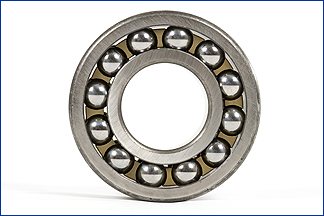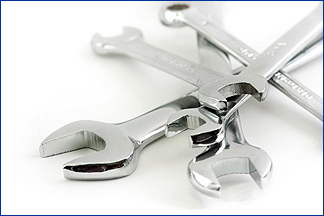

Newburyport, MA 01950
Call 978.499.8950
Fax: 978.499.8967
Email Us

About Us
Hard Chrome
Electropolish
Contact Us
50 Parker Street, Unit #5
Newburyport, MA 01950
Call 978.499.8950
Fax: 978.499.8967
Email Us
Hard Chrome
Why Hard Chrome?
 Surface engineering is a hot topic these days, with applications throughout a wide range of industrial sectors. Engineering surface treatments and coatings can bring specialist properties of corrosion and wear resistance, without compromising the characteristics of the substrate or base metal. Many new processes are emerging, their innovations and developments sometimes outpacing any proven industrial demand or performance demonstration. There is vapor deposition, implantation, an expansive array of thermal spray coatings, and many others, all attempting to attain the ultimate hard, tough, wear resistant, low friction and anti-corrosion surface.
Surface engineering is a hot topic these days, with applications throughout a wide range of industrial sectors. Engineering surface treatments and coatings can bring specialist properties of corrosion and wear resistance, without compromising the characteristics of the substrate or base metal. Many new processes are emerging, their innovations and developments sometimes outpacing any proven industrial demand or performance demonstration. There is vapor deposition, implantation, an expansive array of thermal spray coatings, and many others, all attempting to attain the ultimate hard, tough, wear resistant, low friction and anti-corrosion surface.And yet, for many applications, such a coating already exists, with qualities too long taken for granted or even overlooked, and its development too long neglected. Hard Chrome Plating brings a wide variety of desirable properties and characteristics; properties that many engineers require of their components and products.
What is Hard Chrome?
Hard Chrome Plating is an electrolytic process utilizing a chromic acid based electrolyte. The part is made the cathode and, with the passage of a DC current via lead anodes, chromium metal builds on the component surface. A wide variety of parts can be coated; it requires only the proper fixturing, a large enough bath, sufficient lifting capacity, and adequate power sources. Hard Chrome Plating offers many attractive properties to the engineer.
A wide variety of parts can be coated; it requires only the proper fixturing, a large enough bath, sufficient lifting capacity, and adequate power sources. Hard Chrome Plating offers many attractive properties to the engineer.
What are the Benefits of Hard Chrome?
It is ultra Hard;850-100Hv (65-70Rc), harder than most industrial abrasives and steel counter faces. Unusually, it combines this hardness with a degree of toughness, so the deposit can stand up to high stress contact.
It gives superb substrate adhesion;
Greater than 10,000 psi. Before plating, substrates are subjected to rigorous cleaning, so that the surface to be coated is completely free from contaminates. But the ultimate adhesion is achieved in the plating bath itself, with an initial reverse voltage etch which removes any residual surface contamination.
It can be applied to a wide variety of substrates;
Covering a wide range of engineering or high alloyed steels (including stainless steels and cast irons), lightweight aluminum alloys or titanium alloys, copper alloys, brasses and bronzes, as well as nickel-based alloys.
It provides superb abrasion resistance:
 Even under high contact stress. It gives a very low wear rate (at least 100 times better than hardened steels or electroless nickel) with abrasive products like textiles, paper and food stuffs. With thick deposits, it gives excellent wear resistance under high stress contact against sand, coal, cement, limestone, glass fibers, etc.
Even under high contact stress. It gives a very low wear rate (at least 100 times better than hardened steels or electroless nickel) with abrasive products like textiles, paper and food stuffs. With thick deposits, it gives excellent wear resistance under high stress contact against sand, coal, cement, limestone, glass fibers, etc.With abrasion being the most common and destructive wear process found in industry, hard chrome has the potential to solve many problems in pumps, valves, bearings, etc. throughout a wide range of industries; including pharmaceutical, chemical, oil and gas, textiles, printing, food, mining, and countless others.
The deposition temperature is low;
And with de-embrittlement treatment has little effect on substrate properties. Provided that high strength steels are stress-relieved before plating and heat-treated again afterwards (usually for 3 to 12 hours at about 375*F), there will be few problems with hydrogen embrittlement.
 It can be applied to a wide range of geometry’s;
It can be applied to a wide range of geometry’s;With careful attention to anode design and fixturing, chrome plating can be applied evenly to flat surfaces, to fine bores, even with large aspect ratios, to cylindrical like shafts or rollers, and to holes and close tolerance areas.
It gives ultra high metal-to-metal sliding wear resistance;
Up to 100 times less wear than given by through-hardened, induction hardened, carburized or nitrided steels in dry sliding situations, and greatly superior to Electroless Nickel.
It has a bright, attractive finish;
 It responds very well to grinding and polishing, providing ideal surfaces for dealing with delicate products (like textiles and paper), for giving low friction, and for high precision parts like lathe beds.
It responds very well to grinding and polishing, providing ideal surfaces for dealing with delicate products (like textiles and paper), for giving low friction, and for high precision parts like lathe beds.It produces very low friction;
Against polymers, carbons and graphite’s. This makes it ideal for textile applications or for seal faces, as well as for components like vane pumps. It is the perfect counterface for PM and other polymers which rely on establishing a transfer-film for their best performance.
The plating is stable and non-corrodible;
It’s suitable for most organic acids and gasses (not chlorine), excellent in hot oxidizing or reducing air, in commodities like beer, sugar, brine, coal gas, cyanides, fruit acids, molten glass, glue, milk, oils and fuels.
Hard Chrome Specifications used at DynaChrome:
QQ-C-320AMS 2406
AMS 2460
AMS 2438
Massachusetts (MA) Website Design Development